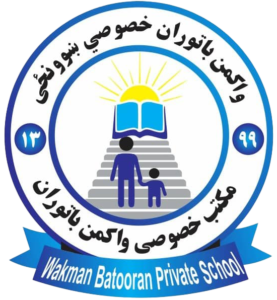In a world that is constantly evolving, the importance of education cannot be overstated. Knowledge is the cornerstone of progress, and empowering students with the right tools, skills, and information is essential for building a successful future. As we navigate the complexities of the 21st century, it’s clear that education is no longer just about memorizing facts; it’s about fostering critical thinking, creativity, and adaptability. In this blog post, we’ll explore how empowering students with knowledge can pave the way for their success and the betterment of society as a whole.
The Power of Knowledge
Knowledge is more than just information—it’s the ability to understand, analyze, and apply what we learn to real-world situations. When students are equipped with knowledge, they gain the confidence to make informed decisions, solve problems, and innovate. This empowerment goes beyond academic success; it shapes their ability to contribute meaningfully to their communities and the global economy.
In today’s fast-paced, technology-driven world, the demand for skilled professionals is higher than ever. By providing students with a strong educational foundation, we prepare them to meet the challenges of tomorrow. Whether it’s through STEM (Science, Technology, Engineering, and Mathematics) education, arts, or humanities, every field of study plays a crucial role in shaping well-rounded individuals who can think critically and adapt to change.
Building Critical Thinking and Problem-Solving Skills
One of the most important aspects of empowering students is teaching them how to think, not what to think. Critical thinking and problem-solving skills are essential for navigating the complexities of modern life. By encouraging students to question, analyze, and evaluate information, we help them develop the ability to make sound decisions and tackle challenges head-on.
For example, project-based learning and hands-on experiences allow students to apply their knowledge in practical ways. Whether it’s designing a science experiment, writing a research paper, or collaborating on a group project, these activities foster creativity and innovation. When students are given the opportunity to explore their interests and passions, they become more engaged and motivated to learn.
Embracing Technology and Digital Literacy
In the digital age, technology is an integral part of education. Empowering students with digital literacy skills is crucial for their success in a world where technology is constantly changing the way we live and work. From coding and data analysis to digital communication and cybersecurity, these skills are no longer optional—they are essential.
Schools and educators play a vital role in integrating technology into the classroom. By providing access to digital tools and resources, we can help students develop the technical skills they need to thrive in the workforce. Additionally, teaching students how to use technology responsibly and ethically ensures that they are prepared to navigate the digital landscape with confidence.
Fostering Lifelong Learning
Empowering students with knowledge isn’t just about preparing them for their first job—it’s about instilling a love for lifelong learning. The world is changing at an unprecedented pace, and the ability to adapt and learn new skills is more important than ever. By encouraging curiosity and a growth mindset, we help students become lifelong learners who are always ready to embrace new opportunities.
One way to foster lifelong learning is by promoting interdisciplinary education. When students are exposed to a variety of subjects, they develop a broader perspective and a deeper understanding of the world. This holistic approach to education encourages students to think outside the box and make connections between different fields of study.
The Role of Educators and Parents
Empowering students with knowledge is a collective effort that involves educators, parents, and the community. Teachers play a crucial role in creating an inclusive and supportive learning environment where students feel valued and motivated to succeed. By using innovative teaching methods and personalized learning approaches, educators can cater to the unique needs of each student.
Parents also have a significant impact on their children’s education. By encouraging a love for learning at home and supporting their children’s academic pursuits, parents can help reinforce the importance of education. Open communication between parents and educators ensures that students receive the guidance and encouragement they need to reach their full potential.
Preparing Students for a Globalized World
In an increasingly interconnected world, cultural awareness and global competence are essential skills. Empowering students with knowledge about different cultures, languages, and perspectives prepares them to collaborate with people from diverse backgrounds. This not only enhances their personal growth but also makes them more competitive in the global job market.
Programs such as international exchanges, language courses, and global studies initiatives provide students with the opportunity to broaden their horizons and develop a deeper understanding of the world. By fostering empathy and respect for different cultures, we help students become responsible global citizens who can contribute to a more peaceful and prosperous world.
Conclusion
Empowering students with knowledge is one of the most impactful ways to shape a successful future—for individuals and society as a whole. By focusing on critical thinking, digital literacy, lifelong learning, and global competence, we can prepare students to thrive in an ever-changing world. Education is not just about passing exams; it’s about equipping students with the tools they need to navigate life’s challenges and seize opportunities.
As educators, parents, and community members, we all have a role to play in empowering the next generation. Together, we can create a brighter future where every student has the knowledge, skills, and confidence to achieve their dreams and make a positive impact on the world. Let’s invest in education today to build a better tomorrow.
What steps do you think we can take to further empower students? Share your thoughts in the comments below!
